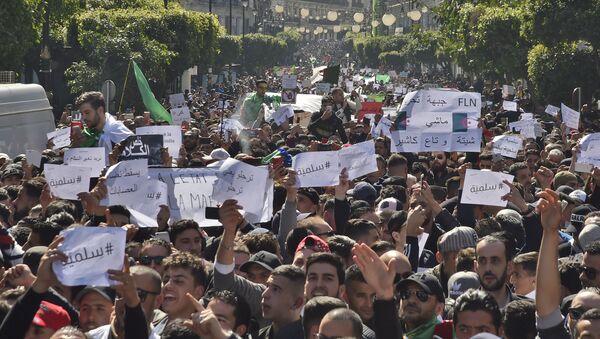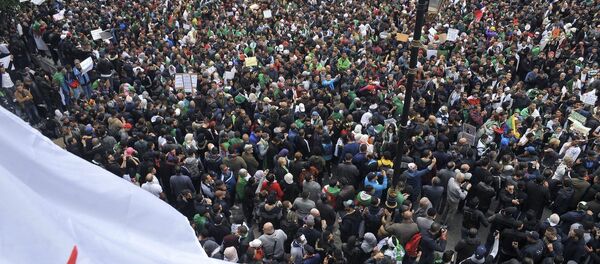In order to circumvent the unavailability of public transport in Algeria's capital, residents of the country's periphery and suburbs are using Yassir which is the Algerian analogue of Uber [the name Yassir is based on a play on words meaning both "easy" and "circulate" in Arabic]; they also hitchhike or just traverse kilometres-long distances on foot.
READ MORE: Opposition Will Be Able to Join Political Process Soon — Algerian FM
Since 1976, Fridays in Algeria are similar — even if there are no rallies, there are always "dead city" operations. Early in the morning, vegetable sellers meet, say, in Belcourt, Hussein Dey or the First of May Square. State and city administrative services are closed on weekends, banking services are reduced to cash terminals, stores, shops and other outlets are also closed, while public transport switches to a weekend timetable.
Since 22 February when popular protests against the authorities started, public transport has switched to minimum service, and sometimes it's totally unavailable. Some of Algiers underground stations are literally being sealed off on Friday mornings before the protesters start to flow in.
Since access to the capital via highways has been blocked, large buses from the periphery, which belong to private companies, are reluctant to go to Algiers. Only a few trains continue to operate sporadically several kilometres from Algiers, but they serve only remote towns.
In order to cope with the transport issue, those standing up against the "system" have resorted to various means. Khadija, a 24-year-old private entrepreneur lives in the fishing village of Bouharoun in the wilaya de Tipaza. For a few weeks, on the eve of each weekly event, she manages to "infiltrate" the capital, where she stays at her friends' place.
Khadija, 24, a private entrepreneur
Sputnik: How did you get to today's demonstration?
Khadija: I live in Bouharoun which is a fishing village sixty kilometres from Algiers. Since I cannot come here in the morning, as there may be no buses or the traffic may be high, I spend the night here, in Algiers, at my friends'. Thus I can demonstrate on Friday. Sometimes, when the demonstration ends late, I spend the night in Algiers and come home the next day.
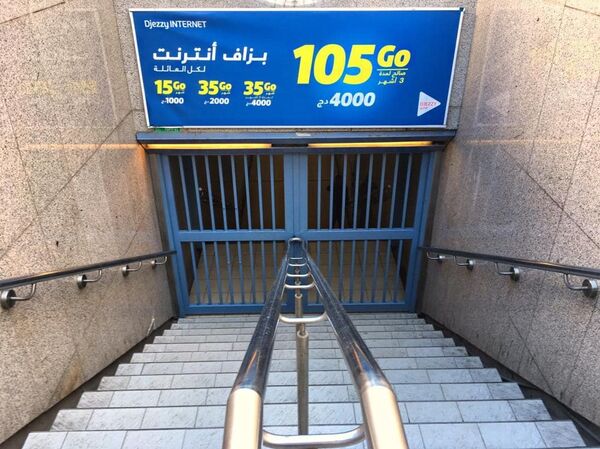
Sputnik: You're going home. Have you learned about public transport timetable for today?
Khadija: I haven't. But I know that for the last two weeks the public transport, be it trams or the underground, has been stopped.
Sputnik: So, nothing has worked. Have you ever thought to use Yassir, or you've never considered that?
Khadija: Sometimes, when everything ends at 5 or 6 pm…
Sputnik: You mean the demonstrations?
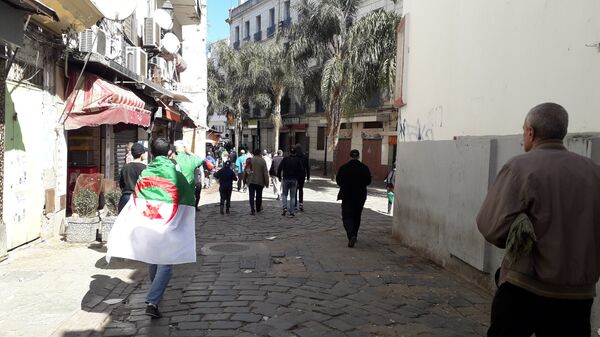
Khadija: Yes. I wait for things to calm down and then, at 8 or 9 pm, I use Yassir to go home. It costs about 1,500 dinars [€15 while the average wage is about €300]. It's a lot, but it's not that much for the good of the revolution!
Unlike Khadija, Houcine, who lives in Bab Ezzouar, in the suburbs of Algiers, can afford "the luxury" of going on foot. "Last time we walked 14 kilometres," he told Sputnik. "Otherwise, we have to hitchhike or use Yassir".
Houcine, 22, a student.
Sputnik: Hi, how did you get to the city centre?
Houcine: I've come here on foot.
Sputnik: Why on foot?
Houcine: First of all, there's no transport. On Fridays, it's difficult to travel since the underground is closed and there are no trams. Basically, there is no transport.

Sputnik: Is everything closed?
Houcine: Yes, it's closed. We knew it. The underground has been closed for three weeks already. There is no transport.
Sputnik: How are you going to get home?
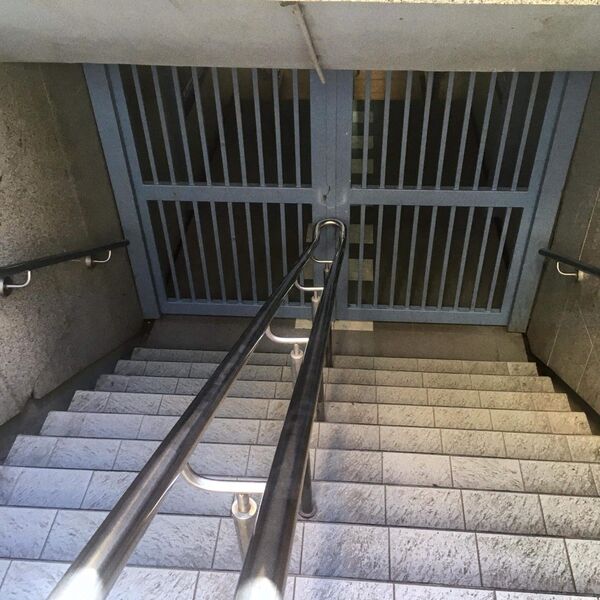
Houcine: It depends. It's either hitchhiking or a taxi, they are coming out at night.
Sputnik: Have you ever used or thought to use Yassir? It's expensive.
Houcine: It's not that expensive. Possibly. Sometimes. But since there's a group of us, even walking is okay. Last time we walked 14 kilometres, so it's no big deal.

